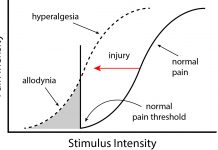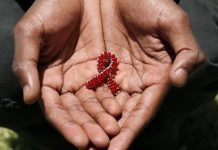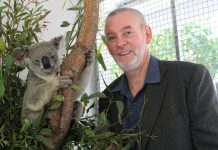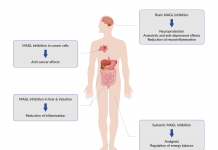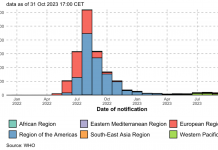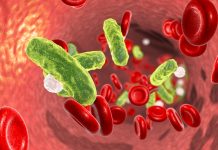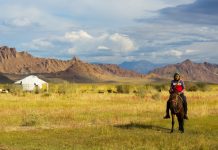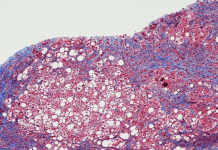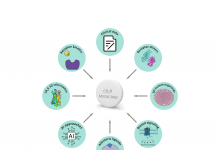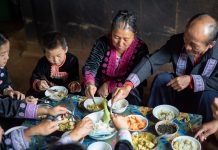Open Access Government produces compelling and informative news, publications, eBooks, and academic research articles for the public and private sector looking at health, diseases & conditions, workplace, research & innovation, digital transformation, government policy, environment, agriculture, energy, transport and more.
Home 2024
Archives
Therapeutic potential of the endocannabinoid system to treat chronic pain in inflammatory disease
Pharma researchers Julie Blaising and Philip Smith from F. Hoffmann-La Roche Ltd. discuss the endocannabinoid system as a pathway to treat inflammatory diseases such as Inflammatory Bowel Disease (IBD) and endometriosis.
Collaborative governance on big health problems in developing countries
Collaborative governance research may help tackle big health problems in developing countries, says Michael P. Ryan. Here, he explains how.
Meteorological data for public health surveillance
Michael Wimberly, Professor from the University of Oklahoma, walks us through integrating meteorological data for public health surveillance and disease forecasting.
Navigating koala conservation challenges with advanced tech and game-changing vaccine research
Discover the intricate tale of koala survival, from habitat struggles to the rise of Chlamydia vaccines, in this exclusive interview with Professor Peter Timms from The University of Sunshine Coast, Australia.
MAGL inhibition: A novel treatment option for combating inflammatory disease?
Pharma researchers Uwe Grether and Julie Blaising from F. Hoffmann-La Roche Ltd. highlight the vast therapeutic potential of MAGL inhibition for central and peripheral diseases.
MPOX: Research priorities for threat reduction
Concerted efforts are needed to close knowledge gaps around mpox to improve preparedness and response efforts for this neglected disease.
Sepsis and the killer platelets
Dermot Cox BSc, PG Dip Ed, PhD, Pharmacology Lead from the School of Pharmacy and Biomolecular Sciences – RCSI University of Medicine & Health Sciences, discusses sepsis and the killer platelets.
Revolutionising disease detection: The emergence of non-invasive VOC breathomics
Breathomics marks a revolutionary approach to disease detection by analyzing the chemical composition of exhaled breath.
Mongolia and the One Health Approach
Mongolia’s unique ecosystems and cultures come with an equally unique set of wildlife management challenges.
The future of AVS, dizziness and vertigo in emergency departments: Part I. Towards a...
In this first of five articles, Dr Millie Nakatsuka discusses the socio-economic implications associated with the diagnosis of acute vestibular syndrome and why more cost-effective and sustainable approaches are needed.
Lessons from Libby: Understanding the impact of asbestos exposure
Jean C. Pfau, Scientific Consultant at the Center for Asbestos Related Disease, shares the devasting story of asbestos exposure occurring in a Rocky Mountain town of Montana and the critical lessons that can be learned from this event.
Sepsis Canada: Building a national research network for sepsis awareness
Sepsis is a life-threatening condition estimated to affect 49 million people annually worldwide; yet it is not widely understood. In this article, we hear how Sepsis Canada is working to promote sepsis awareness through supporting research, public education, and cross-disciplinary training.
Chronic organ damage: Understanding fibrosis
Fibrosis was once considered irreversible, resulting from chronic organ damage; Ken-Ichi Kobayashi from Notre Dame Seishin University tells us why the possibility of treatment to reverse the disease is gaining attention.
The cellular mechanisms of kidney fibrosis: A hitherto understudies aspect of polycystic kidney disease
In this exclusive Q&A session with Dr. Andras Kapus, we unravel the complexities of chronic kidney disease in general and Polycystic Kidney Disease (PKD) in particular, and delve into the ongoing research efforts aimed at combatting kidney fibrosis.
Wastewater surveillance for infectious disease preparedness
The University of Oklahoma Wastewater Based Epidemiology (OU WBE) team highlights successes from their three years of wastewater surveillance in Oklahoma & how this surveillance approach can be used as next-level monitoring for infectious disease preparedness.
CB₂R ligands to treat inflammatory diseases
Researchers discuss how scientific innovations might influence the discovery of future tailor-made CB2R-based anti-inflammatory treatments.
Post-pandemic MERS-CoV still presents risks
Darryl Falzarano, Research Scientist at the Vaccine and Infectious Disease Organization (VIDO), discusses potential solutions that are needed to tackle the coronavirus known as MERS-CoV.
Combatting NCDs using Plant-based Proteins and Animal-Waste Products
Professor Apichart Vanavichit, PhD, a Rice Genomic Breeding Expert at the Rice Science Center, walks us through high-quality crop-based and ovo-based protein hydrolysates to combat non-communicable diseases in Thailand, specifically among its ageing population.
CB2R agonists in the clinics: A treasure chest for treating inflammatory diseases
Researchers give an update on clinical trials with CB2R agonists and their potential for the treatment of inflammatory diseases.
Microalgae as a sustainable source of protein and food ingredients
Microalgae can be an alternative sustainable source of protein and functional food ingredients that have the potential to improve gut and liver health.

